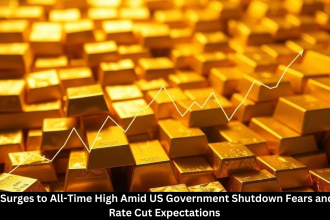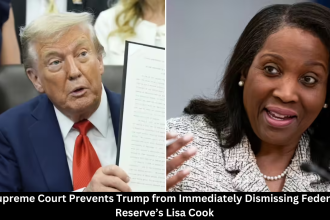The global balance of power is undergoing a historic transformation as the BRICS alliance—originally comprising Brazil, Russia, India, China, and South Africa—formally welcomed six new member states in 2025. With Saudi Arabia, the United Arab Emirates, Egypt, Iran, Argentina, and Ethiopia now part of the bloc, BRICS has expanded into a powerful coalition representing nearly half the world’s population and over 40% of global oil production.
This expansion is more than symbolic; it signals a major geopolitical realignment that could challenge Western dominance in economics, politics, and global governance.
A New Era of BRICS Influence
The BRICS alliance was founded in 2009 as an economic partnership among emerging economies. Over the years, it evolved into a political and strategic platform for nations seeking alternatives to Western-led institutions such as the International Monetary Fund (IMF), World Bank, and the U.S.-dominated global financial system. The 2025 expansion marks the most ambitious move in its history, positioning BRICS as a formidable counterweight to the G7.
By incorporating oil giants like Saudi Arabia and the UAE, alongside strategically significant nations like Iran and Egypt, BRICS now commands massive influence over energy markets and global trade routes. Argentina’s inclusion gives the bloc a foothold in South America, while Ethiopia strengthens its presence in Africa. Collectively, the expanded BRICS represents a coalition with both economic clout and strategic reach.
Motivations Behind Expansion
The decision to expand was driven by shared frustrations with Western dominance in finance and diplomacy. Many of the new members have long criticized sanctions, trade restrictions, and what they perceive as unfair treatment from Western-led organizations. By joining BRICS, these nations hope to gain more control over their economic destinies while diversifying global power structures.
China and Russia, in particular, pushed hard for expansion. Beijing views the larger BRICS as an opportunity to strengthen its Belt and Road Initiative (BRI) and promote the use of the yuan in international trade. Moscow, isolated by Western sanctions following the war in Ukraine, sees the alliance as a lifeline for economic cooperation and political legitimacy. Meanwhile, countries like Saudi Arabia and the UAE aim to hedge against overreliance on Western markets by building stronger ties with emerging economies.
Economic Implications
The expanded BRICS boasts a combined GDP of nearly $35 trillion, surpassing that of the G7 in purchasing power parity (PPP). With vast energy reserves, critical minerals, and growing consumer markets, the bloc has enormous potential to reshape global trade patterns.
One of the key initiatives under discussion is the creation of a BRICS common currency, designed to reduce dependence on the U.S. dollar in international trade. While experts note that this would be a long and complex process, even partial success could undermine the dollar’s global dominance and shift financial power toward the East and Global South.
Additionally, the New Development Bank (NDB), established by BRICS in 2014, is expected to play a larger role in funding infrastructure and development projects across member states. With expanded membership, the bank could rival institutions like the IMF and World Bank, offering an alternative financing model free from Western political conditions.
Political and Strategic Dimensions
The expansion also has major geopolitical implications. BRICS is increasingly positioning itself as the voice of the Global South, advocating for multipolarity in world affairs. By bringing together diverse nations with differing ideologies, the alliance demonstrates a shared commitment to resisting what they view as Western unilateralism.
At the same time, internal divisions remain. India, for example, remains wary of China’s growing influence and has sought to balance BRICS participation with its ties to the United States and the Quad alliance (U.S., Japan, Australia, India). Similarly, long-standing rivalries, such as those between Iran and Saudi Arabia, raise questions about whether the bloc can maintain unity in practice.
Western Response
The West has reacted cautiously to the expansion. While officials in Washington and Brussels downplay BRICS as a fragmented coalition, there is growing recognition that the alliance’s growing economic weight could pose challenges to Western-led institutions. The U.S. has intensified diplomatic outreach in Africa, Asia, and Latin America to counter BRICS influence, while the European Union has emphasized the importance of strengthening ties with developing nations.
Critics argue that BRICS lacks the institutional coherence of the G7, which shares common political systems and values. However, supporters of BRICS counter that diversity is a strength, giving the alliance broader representation and legitimacy among emerging economies.
Global South Rising
For many nations in Africa, Asia, and Latin America, the BRICS expansion represents hope for a fairer world order. The alliance’s call for reforming the United Nations Security Council, the World Trade Organization, and global financial governance resonates with countries that feel sidelined by Western dominance.
By offering alternative models of cooperation, BRICS could empower smaller nations to pursue independent foreign policies without being forced to align exclusively with Washington, Brussels, or Beijing.
Future Prospects
The success of the expanded BRICS will depend on its ability to overcome internal contradictions and translate ambition into action. If the bloc can create meaningful financial alternatives, strengthen development financing, and coordinate on global challenges like climate change, it could emerge as a transformative force in the 21st century.
However, if internal rivalries dominate, BRICS risks becoming little more than a symbolic counterweight to the West. The next few years will be critical in determining whether the alliance is capable of reshaping the international system—or if it remains a coalition of convenience.
FAQs
Which new countries joined BRICS in 2025?
Saudi Arabia, the United Arab Emirates, Egypt, Iran, Argentina, and Ethiopia.
Why did BRICS expand?
To strengthen its global influence, challenge Western dominance, and create alternative financial and political structures.
How large is the BRICS economy after expansion?
The expanded BRICS has a combined GDP of around $35 trillion, surpassing the G7 in PPP terms.
Is BRICS planning to introduce a common currency?
Discussions are ongoing about a BRICS currency to reduce reliance on the U.S. dollar, though implementation may take years.
What role does the New Development Bank play?
The NDB funds infrastructure and development projects, providing an alternative to the IMF and World Bank.
How does the expansion affect energy markets?
With Saudi Arabia, UAE, Iran, and Russia as members, BRICS now controls a large share of global oil production.
Are there internal challenges within BRICS?
Yes, rivalries between countries like India and China or Iran and Saudi Arabia may complicate unity.
How has the West reacted?
The U.S. and EU downplay BRICS’ impact but are stepping up engagement with developing nations to counter its influence.
Why is BRICS important for the Global South?
It represents a platform for emerging economies to demand fairer treatment in global governance.
What’s next for BRICS?
The bloc aims to deepen economic cooperation, expand financial independence, and increase its political voice on global issues.
Conclusion
The 2025 BRICS expansion marks a historic turning point in global politics and economics. By welcoming six new members, the alliance has transformed into a powerful coalition with the potential to challenge Western-led institutions and reshape international relations. With vast resources, strategic positioning, and a commitment to multipolarity, BRICS symbolizes the rise of the Global South as a force in world affairs.
Yet the path ahead is uncertain. The bloc must overcome internal rivalries and prove it can act with unity and purpose. If successful, BRICS could usher in a new era of global governance, where power is shared more equitably and emerging economies play a central role. If not, it risks being seen as a symbolic protest rather than a genuine alternative.








